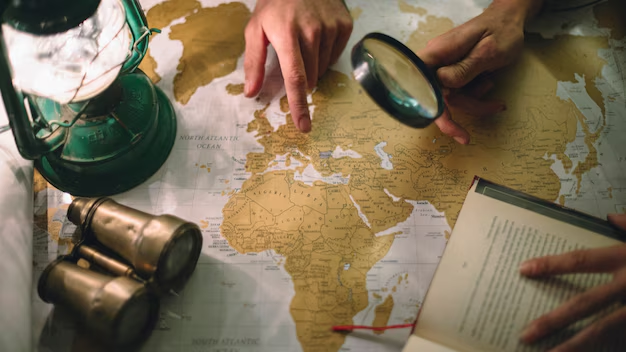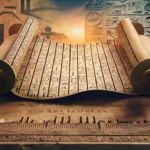History is not just a collection of dates, facts, and events. It is the story of humanity, one that shapes the present and influences the future. Understanding history allows us to see how we have evolved as individuals, societies, and civilizations. In today’s fast-paced world, it is easy to overlook the importance of history. However, learning from the past is crucial for understanding the complexities of modern life and making informed decisions for the future. This article explores the significance of history in modern society and why it remains an essential part of our everyday lives.
1. History as a Teacher
The most powerful lesson that history offers is the ability to learn from past mistakes and successes. By studying history, we can identify patterns and trends that have shaped the world, helping us avoid repeating the same errors. For example, the wars and conflicts of the past serve as a cautionary tale about the consequences of political unrest and social division. Similarly, the triumphs of social movements, such as the civil rights movement, teach us about the power of resilience, unity, and justice.
In the modern context, understanding historical events like the Great Depression or the rise of global pandemics enables societies to craft policies that can prevent or mitigate similar crises. History equips us with the knowledge to address contemporary challenges effectively and to build a more resilient future.
2. History and Identity
History is integral to shaping individual and collective identity. Our past influences our values, beliefs, and cultural norms. Whether it’s the history of a nation, a community, or a family, the stories of our ancestors and their struggles play a significant role in who we are today.
For nations, history is the backbone of national identity. The heroes, the triumphs, and even the tragedies of the past form the narratives that define a country’s character. Take, for instance, the role of historical figures such as Nelson Mandela in South Africa or George Washington in the United States. These individuals not only shaped the political landscape of their time but also became symbols of the values that those nations hold dear, such as freedom, equality, and justice.
At a personal level, history helps individuals connect with their heritage and roots. By learning about the history of one’s family, ethnicity, or culture, people can gain a deeper appreciation for their identity and the diverse backgrounds that make up society.
3. Understanding Social and Political Structures
To understand how modern societies function, it is essential to examine their historical development. Governments, institutions, laws, and economic systems have evolved over time based on the outcomes of past events. For instance, the development of democratic systems in the West was shaped by events such as the American Revolution and the French Revolution. These movements emphasized the importance of individual rights, representation, and accountability, principles that continue to guide modern democratic societies.
In addition, the study of history provides insight into the rise and fall of empires, the development of capitalism, and the establishment of international relations. The consequences of historical events like the colonization of Africa or the industrial revolution have left lasting marks on global economic and political systems. By understanding these events, we gain a clearer perspective on issues such as globalization, inequality, and international conflicts.
4. History and Culture
Culture is the collective expression of human creativity, belief, and tradition. It is deeply connected to history, as cultural expressions are often shaped by historical experiences. Art, literature, music, and religion all draw from the past, preserving traditions and beliefs that have been passed down through generations.
For instance, the Renaissance period was not just an era of artistic achievement, but also a time when ideas about humanism, science, and philosophy flourished, significantly influencing modern Western thought. In the same vein, the rich literary heritage of ancient civilizations like Greece and Rome continues to impact literature, philosophy, and even politics today.
Understanding the history behind cultural practices and expressions helps us appreciate the diversity of human experience and enables us to see how cultural traditions evolve over time. This awareness fosters respect for different cultures and promotes cultural preservation in the modern world.
5. History in Shaping Future Decisions
In today’s interconnected world, global decisions are increasingly influenced by past events. The study of history can help us predict the likely outcomes of certain actions or policies. For instance, the aftermath of World War II and the subsequent establishment of international organizations like the United Nations shaped the modern global order. Understanding the reasons behind the creation of these institutions and the lessons learned from past failures helps modern leaders navigate complex international relations and global challenges.
Moreover, history allows us to make informed decisions regarding issues like climate change, technological advancement, and social justice. By analyzing the successes and failures of previous efforts to address these problems, we can craft more effective strategies for tackling them in the present and future.
FAQs
1. Why is history important in modern society?
History provides valuable lessons from the past, helping us avoid mistakes, shape our identities, and understand the development of modern systems and cultures.
2. How does history influence our current values?
Our values are often shaped by historical events and figures, creating a sense of identity that influences our beliefs and actions.
3. Can studying history help us solve contemporary problems?
Yes, by learning from past successes and failures, we can develop more effective strategies for addressing modern challenges.
4. How does history affect our political systems?
Political systems have evolved based on historical events, such as revolutions and social movements, which have shaped modern democratic principles.
5. What role does history play in shaping national identity?
Historical events and figures shape national narratives, defining what a country stands for and influencing the collective identity of its citizens.
6. How does history affect cultural practices?
Cultural practices are often the result of historical experiences and beliefs, preserving traditions and promoting understanding across generations.
7. Is it possible to learn from history without repeating past mistakes?
While history provides valuable lessons, it requires active engagement and reflection to avoid repeating past mistakes.
Conclusion
History is not merely a record of past events; it is a powerful tool for understanding the present and shaping the future. By studying the stories of those who came before us, we gain insight into the structures, cultures, and values that have shaped our world. In an era of rapid change, the lessons of history remain a constant source of guidance, helping us navigate the complexities of modern life and make informed decisions for the future. As we continue to face global challenges, the study of history offers both a reflection of our journey and a roadmap for progress.




